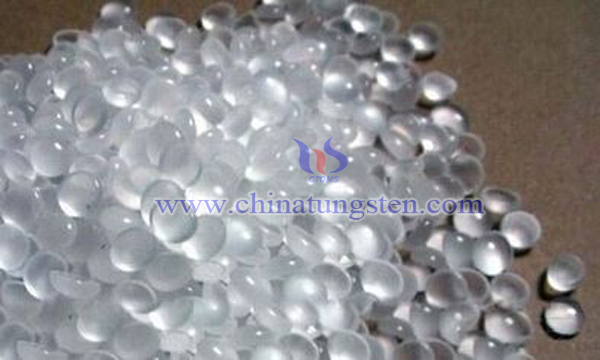Propylene Production with Supported Silicotungstic Acid Catalyst
- Details
- Category: Tungsten Information
- Published on Monday, 08 April 2019 21:47
Propylene is one of the most important basic organic raw materials after ethylene. Its maximum use is to produce polypropylene, accounting for about 60%, followed by acrylonitrile, propylene oxide, isopropyl benzene, isopropanol, carbonyl alcohol and other downstream products.

Tungsten heteropoly acids, represented by phosphotungstic acid and silicotungstic acid, are metal oxygen clusters formed by bridging metal atoms with oxygen atoms. It has good catalytic performance and is an efficient bifunctional catalyst. It has not only acid catalytic performance, but also redox catalytic performance. Heteropoly acid has stable structure and can be used in homogeneous or heterogeneous catalytic environment. It can also be used together with phase transfer catalyst. It has no pollution to the environment and little corrosiveness to equipment. It is a promising green catalyst.
A supported silicotungstic acid catalyst was proposed. The supported tungsten-based catalyst can be used for disproportionation of 1-butene to propylene at lower reaction temperature. The catalyst can be used for disproportionation of 1-butene to propylene at low temperature (80-200 C) and atmospheric pressure. The conversion of 1-butene can reach 71.7 mol, and the yield of propylene can reach 20.9 mol.
Step 1: Dissolve 3-aminopropyl triethoxysilane (Aldrich, 99.9%) containing silicon in 10 mL absolute ethanol to obtain silicon-containing organic solution, stir and impregnate 1 g gamma-Al2O3 in silicon-containing organic solution for 2 hours, then extract the impregnated gamma-Al2O3, dry at 100 (?) for 24 hours, and roast the dried gamma-Al2O3 in air to obtain 20Si/Al carrier. The degree of calcination is 550 C and the calcination time is 24 h.
Step 2. The carrier mentioned in Step 1 of 1G was stirred and impregnated in 10 mL ammonium metatungstate solution (containing 0.06g tungsten) for 5 hours. Then the impregnated carrier was removed and dried at 100 C for 24 hours. Then the dried carrier was roasted in air to obtain a supported silicotungstic acid catalyst for propylene disproportionation.
By depositing 10wt%-25wt% Si on the surface of gamma-Al2O3, not only the acidity of the carrier can be increased, but also the interaction between the carrier and the loaded tungsten oxide can be weakened, and the dispersion of tungsten oxide on the carrier can be reduced. At low temperature, when 1-butene contacts, it is advantageous to form disproportionated active metal carbene species, thus greatly increasing the conversion rate of propylene.



 sales@chinatungsten.com
sales@chinatungsten.com